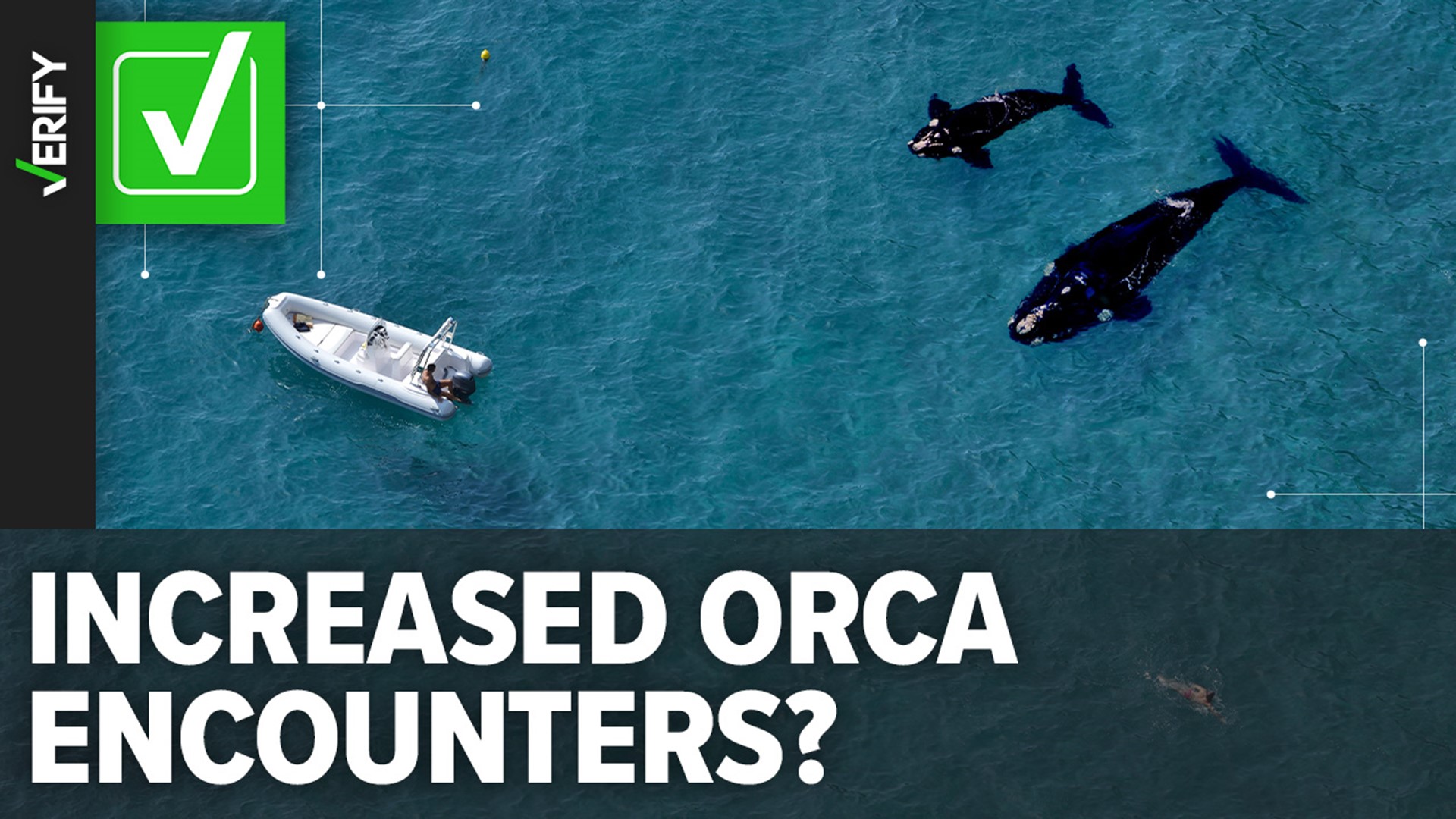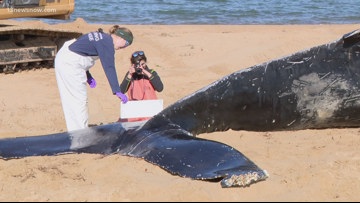In recent weeks, videos showing orcas, also known as killer whales, reportedly “attacking” boats have been shared widely on social media. These videos follow several years of media reports on the marine mammals purportedly targeting boats.
Because of the videos and news reports, orcas, which scientists have said are among the smartest animals in the wild, have gained a reputation for exacting their “revenge” against humans.
Google searches about orcas attacking or sinking yachts or boats have become more popular in the past month, and several viral social media posts joked that orcas were involved in the deadly implosion of the OceanGate submersible during an expedition to the Titanic wreckage.
THE QUESTION
Have orca encounters with boats increased in recent years?
THE SOURCES
The Grupo de Trabajo Orca Atlántica (GTOA), or Atlantic Orca Working Group
Whales Online, a magazine and encyclopedia published by the nonprofit Group for Research and Education on Marine Mammals (GREMM)
Hanne Strager, a marine biologist, whale researcher and author of “The Killer Whale Journals”
THE ANSWER
Yes, orca encounters with boats have been on the rise in recent years. However, these incidents are mostly concentrated off the coasts of Spain and Portugal.
WHAT WE FOUND
In recent years, scientists have noted a rising number of interactions between orcas and boats, usually sailboats, around the Iberian Peninsula, which is where Spain and Portugal are located.
The Grupo de Trabajo Orca Atlántica (GTOA), or Atlantic Orca Working Group, said the “disruptive” behavior began in 2020.
Several juveniles and one adult from a group of orcas native to the Iberian Peninsula region began to interact primarily with sailboats, although some encounters extended to fishing boats and motorboats, according to a report from the GTOA. The orcas behaving this way usually target parts of the boats that are submerged, mainly their rudders, the report said.
The orcas reportedly touched, pushed and turned the boats, damaging the rudders in some cases. Whales Online, a magazine and encyclopedia published by a nonprofit research group, reports that at least three ships have sunk following orca interactions.
Prior to 2020, there were few recorded interactions between orcas and boats worldwide, the GTOA report and Hanne Strager, a marine biologist and whale researcher, said.
According to GTOA data, since 2020 there have been more than 500 reported interactions between orcas and boats around the Iberian Peninsula, both with and without physical contact.
From July to November 2020, the GTOA reported 52 interactions occurring in the waters around the western coast of Spain.
There were 197 interactions in 2021 — an increase of about 279%. In 2022, there were 207 recorded interactions. Alfredo López Fernandez, a biologist in Portugal and representative for the GTOA, told VERIFY there have been 93 reported interactions in 2023 so far.
Many news reports and online posts have referred to the orca interactions as “attacks.” But this term may not be accurate, since scientists don’t know why the whales are interacting with boats.
“Attack implies that there’s some kind of aggression involved in it, whether it’s for food, or just because they don’t like people or boats or whatever it is. And we don’t know if there’s any aggression involved in this,” Strager told VERIFY.
Strager highlighted three theories that could explain the orcas’ behavior: the orcas are playing, exacting “revenge” for a specific incident in which an orca was hit by a boat, or it’s a response to living in a stressful environment.
The theory that this is a learned, playful behavior is the most plausible one, says Whales Online, as groups of killer whales have demonstrated a history of taking part in seemingly meaningless “fads.”
Scientists who argue the revenge theory believe that the whales are retaliating for a past ship-related trauma to the group’s matriarch. Among the group that regularly interacts with boats, she is the lone adult — the rest are younger whales, Whales Online says. Some scientists refute this theory because it would rely on an even higher level of communication skills than most researchers believe orcas have.
The last theory suggests that orcas are interfering with boats as a reaction to the constant stress of maritime traffic and noise pollution.
Strager said boats outside of the area around Spain shouldn’t have to worry about orca attacks because the behavior has so far been limited to that area.
Orcas around the world live in several different subpopulations distinct from each other, with unique prey, hunting techniques and genetics, the National Oceanic and Atmospheric Administration (NOAA) says. Orca populations pass knowledge and behaviors down from elders to their young within these subpopulations, Whale and Dolphin Conservation says.
Other killer whale populations are unlikely to adopt this behavior with boats without somehow intermingling with the small population around Spain.
The Iberian Peninsula subpopulation is critically endangered with less than 40 individuals, Strager said. So while the orcas’ unexplained behavior creates a dangerous situation for sailors, it also puts an endangered population of animals at risk.
“It’s important that we talk about these whales as endangered, even though they’re doing something that a lot of people don’t like,” she said.













